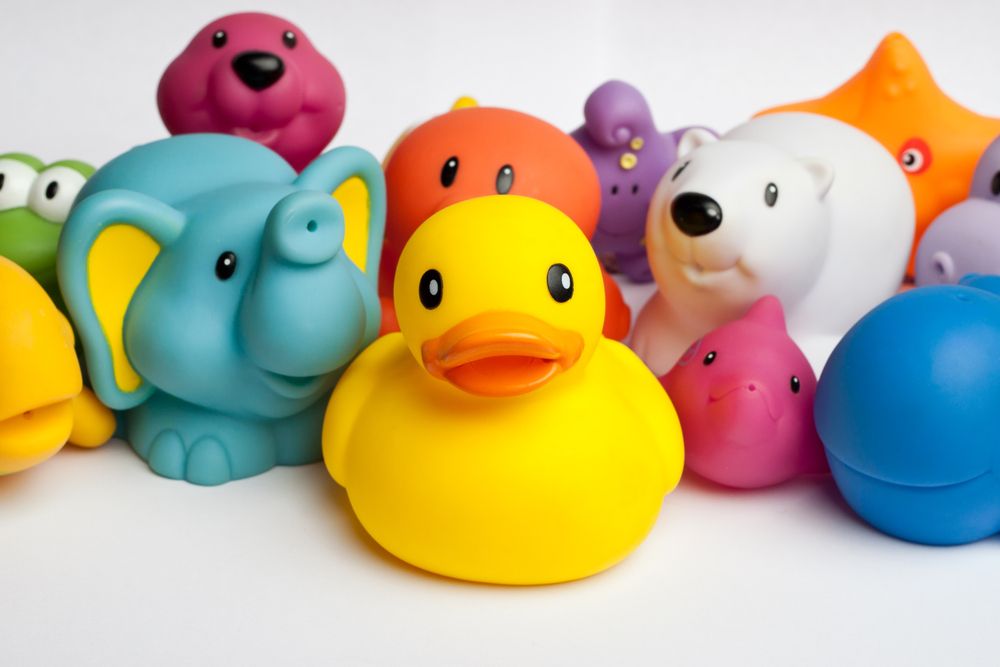- Clinical Technology
- Adult Immunization
- Hepatology
- Pediatric Immunization
- Screening
- Psychiatry
- Allergy
- Women's Health
- Cardiology
- Pediatrics
- Dermatology
- Endocrinology
- Pain Management
- Gastroenterology
- Infectious Disease
- Obesity Medicine
- Rheumatology
- Nephrology
- Neurology
- Pulmonology
Bath Toys: Another Thing To Worry About?
What’s swimming around in kids’ bath water-besides their rubber duckies? And why might it matter?
©MCarper/Shutterstock.com

What do cellphones, kitchen sponges, and those toy rubber ducks kids play with in the bath have in common?
All 3 are breeding grounds for prolific growth of a variety of pathogenic bacteria.1,2
It’s the polymer material from which those bath toys are made that acts as a bacterial nutrient, according to a new study on “Ugly Ducklings” published in Biofilms and Microbiomes. The investigators examined the “biofilm communities” of 19 bath toys-“real toys” from real households, toys submerged in clean water (which served as controls), and toys plucked from dirty water (after bathing).
The inner surface of all bath toys had dense and slimy biofilms. Fully 80% included at least one potential opportunistic pathogen, and 61% tested positive for Pseudomonas aeruginosa, Listeria, or Legionella pneumophila. The dirty water toys had the highest concentration of bacteria -– 7.3 +/- 1.0 X 107 cells/cm2. Fungi, mainly Ascomycota were found in all the toys from the dirty water.
What are the clinicial implications of this “biofouling phenomenon”? “It’s not necessarily bad,” write the study authors, and it "may even strengthen the immune defense. . . Nevertheless, bath toys are typically used by children, who are potentially sensitive and vulnerable users. Squeezing water with chunks of biofilm into their faces . . . may result in eye, ear, wound, or even GI tract infections.”
What’s a parent to do-if anything? There are recommendations for cleaning and storing bath toys, such as boiling and removing residual water after each use to reduce potential risk of infection. Or consider an impermeable toy.
Or worry about the kitchen sponge and cell phone instead?
References:
1. Yeginsu C. Your cute rubber duck may be a haven for bacteria. The New York Times. March 28, 2018.
2. Klein J. Cleaning a dirty sponge only helps its worst bacteria, study Says. New York Times. August 4, 2017.
3. Neu L, Banziger C, Proctor CR, et al. Ugly ducklings: the dark side of plastic materials in contact with potable water. Biofilms and Microbiomes. 2018;7
